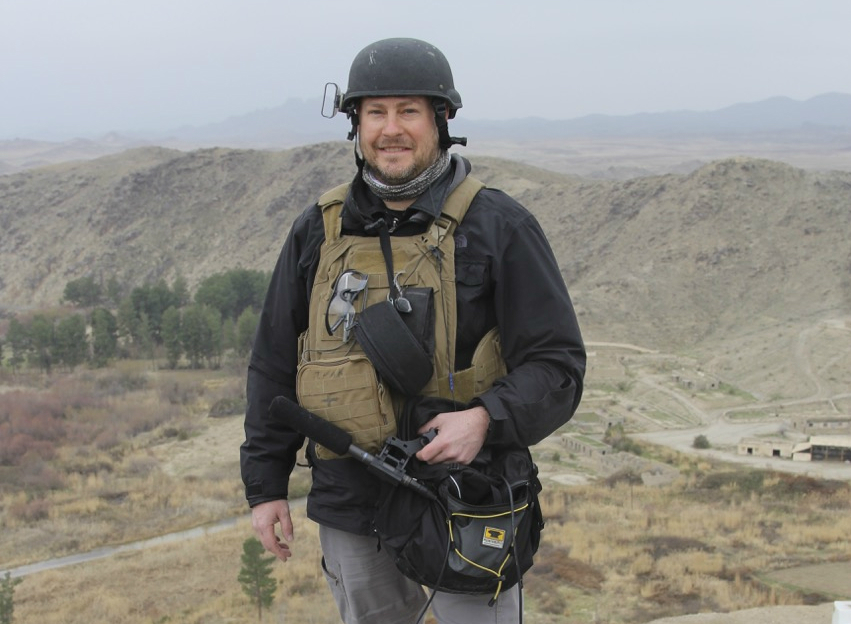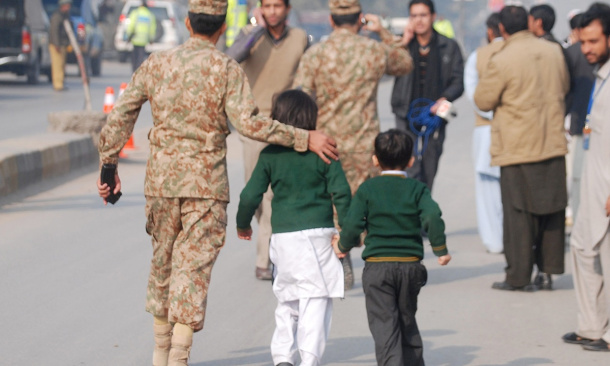By Zoha Waseem:

Forty-five members of a minority community, the Ismailis were gunned down while traveling on a bus carrying sixty people in Karachi on the morning of May 13th. The bus belonged to a not-for-profit, Al-Azhar Garden that provided inexpensive housing and transportation to Ismaili residents of Safoora Goth (a neighbourhood on the outskirts of the city).
The gunmen – allegedly six of them riding on three motorcycles – entered the moving bus and shot and killed the driver. A statement by a female survivor to news agencies revealed that all passengers were asked to lower their heads and duck down. One of the gunmen then ordered the others to open indiscriminate fire – a mode of attack witnessed in numerous cases across Pakistan (particularly on Shia pilgrims traveling on buses through Balochistan), and is reminiscent of the brutal, cold-blooded shootings in Peshawar’s Army Public School last December.
According to initial reports, 45 people were killed – most died on spot, many from the same families. One girl was later found to be crouching in the bus out of fear. She survived.
The gunmen ran and remain at large. At the time of writing, responsibility for the attack had been claimed by Jundullah, a splinter group of Tehreek-e-Taliban Pakistan (TTP) that pledged support to the ISIS last year. The same group was allegedly behind the attack on a Shia Imambargah in Shikarpur (interior Sindh) in January this year in which over 60 people were killed. According to one source that cannot be verified, the gunmen had dropped pro-ISIS pamphlets at the site of the attack that stated it was in retaliation for ‘atrocities against the Ahle-Sunnat Wal Jamaat’ (ASWJ), a pro-Sunni political party, as well as in retaliation to police encounter killings of militants in Karachi.
The Chief of Army Staff Raheel Sharif has cancelled his three-day visit to Sri Lanka. Karachi Police and Sindh Rangers – whose presence is scarce in areas like Safoora Goth – reached the site of attack shortly after it took place. Sindh government has promised financial assistance for family members of all victims. One day of mourning (yom-e-sog) has been declared in Karachi (endorsed by political parties). This will close down local businesses in the city tomorrow. Condemnations and condolences have poured in from across Pakistan, as well as from the Indian Prime Minister, Narendra Modi.
Ismailism is essentially a branch of Shia Islam. Generally considered a peace-loving and hardworking business community in Pakistan, Ismailis in Karachi have reportedly been receiving threats for ‘some time now’, according to one member of the community who spoke to me shortly after the attack. Last year, Ismailis were threatened by the Tehreek-e-Taliban Pakistan in Chitral (northern Pakistan) in a pressure tactic to get them to convert to Islam.
Safoora Goth is a scarcely populated area and its infrastructures (roads, in particular) are severely underdeveloped. It is likely that the attack was carefully planned keeping these logistics in mind. It has called into question the on-going Rangers and Police-led security operation in the city.
Security operations in Karachi – against criminals, terrorists, and militants associated with political parties – have been routinely organised and carry out since the 1990s, often critiqued for being deeply politicised. Following the June 2014 attack on the Jinnah International Airport, the city became a crucial chapter in the military-led operation against terrorists in Pakistan, Operation Zarb-e-Azb. After the Peshawar attack last December, the operation escalated.
While initially restoring some calm in certain neighbourhoods of Karachi earlier this year, the city has continued to suffer from a spate of targeted killings against police officers, doctors, members of the Shia community, university professors, and most recently a human rights activist Sabeen Mahmud.
Many criticise the Karachi operation for targeting one political party while lacking any sectarian focus or long-term agenda to rid the city of its various militant groups. Sectarian attacks have claimed over 130 lives in Karachi this year alone.
The citizens of Karachi are increasingly getting frustrated at the lack of stability these operations are providing. Law enforcement officials regularly boast of lowering levels of street crime and target killings, but the latest attack is a stark reminder that the quality of security for civilians of Karachi remains vulnerable and exposed to all sorts of threats from a host of actors and organisations.
It is clear that Pakistan’s war on terror has fronts across the country and the regional neighbourhood, but its most complicated battles will be fought in the country’s urban centres.
Zoha Waseem is a Doctoral Candidate at the Department of War Studies, King’s College London and Senior Editor for Strife. She tweets @zohawaseem.



